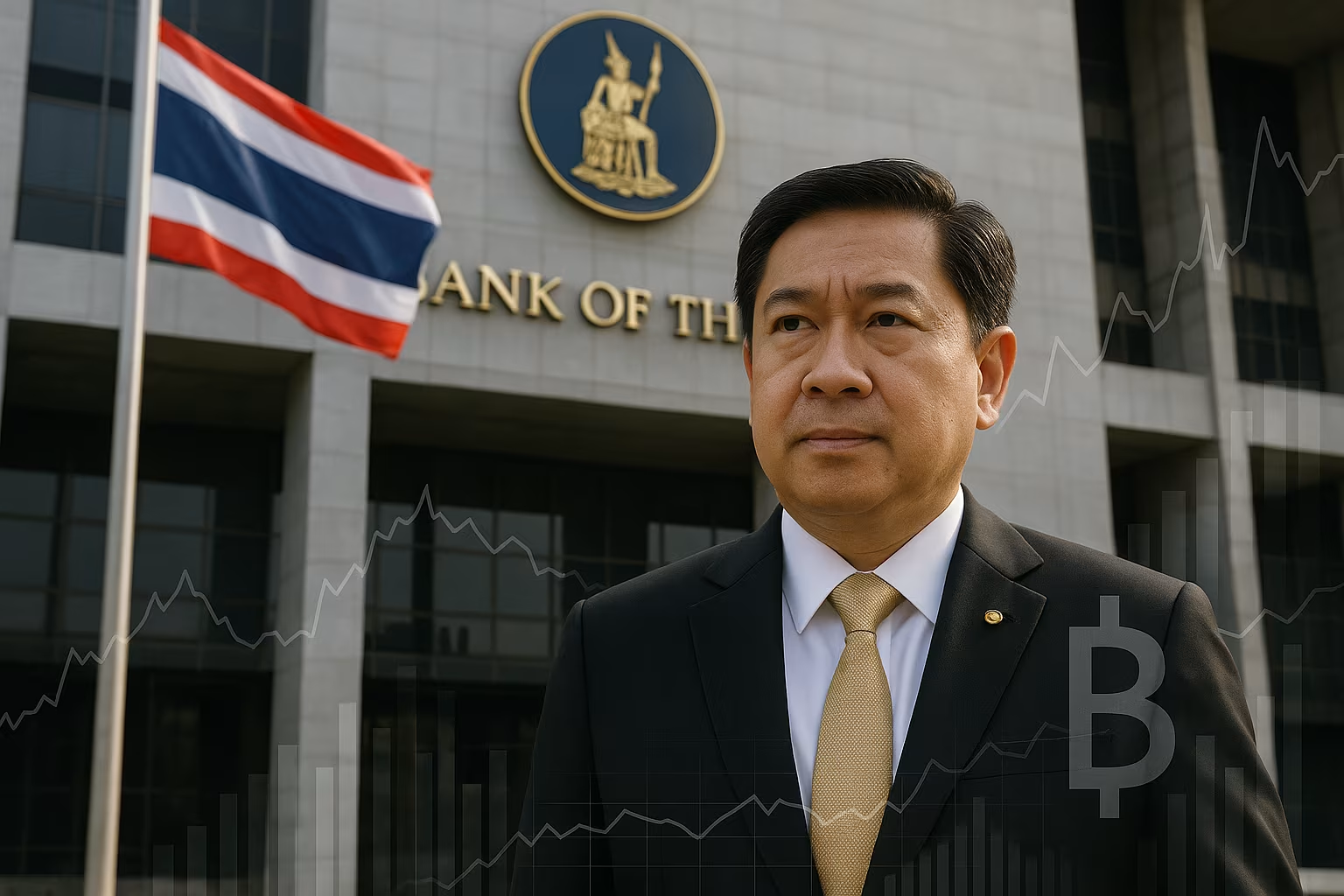Thailand’s King Maha Vajiralongkorn has formally endorsed the appointment of Vitai Ratanakorn as the new Governor of the Bank of Thailand (BoT), marking the beginning of a new chapter for the country’s central bank leadership. Vitai’s appointment comes at a time when the Thai economy is grappling with slower growth, moderate inflation, and global economic uncertainties, placing monetary policy and financial stability at the forefront of the national agenda.
A Royal Endorsement
The royal endorsement, published in the Royal Gazette, confirms Vitai’s succession to the central bank’s top post, succeeding Sethaput Suthiwartnarueput, whose term is set to conclude. The formal approval underscores the importance of the role, not only in managing Thailand’s monetary policy but also in maintaining economic stability and investor confidence.
As governor, Vitai will serve a five-year term, with the possibility of renewal, and will oversee the Bank of Thailand’s responsibilities in setting interest rates, managing the Thai baht, regulating financial institutions, and ensuring the overall health of the financial system.
Vitai’s Background and Experience
Vitai Ratanakorn is widely respected in Thailand’s financial and public administration circles. Prior to his appointment, he served as the Secretary-General of the Government Pension Fund (GPF), where he played a critical role in strengthening the fund’s governance, investment strategies, and risk management framework.
His leadership at the GPF earned him recognition for balancing prudent financial oversight with innovative investment approaches aimed at delivering sustainable long-term returns. Vitai has also held senior roles in the Ministry of Finance and other public institutions, giving him deep insight into the country’s fiscal and monetary dynamics.
Challenges Facing the New Governor
Vitai steps into his role at a pivotal time for the Thai economy, with several pressing challenges on the horizon:
- Sluggish Economic Growth – Thailand’s GDP growth has been under pressure due to soft domestic demand, weaker exports, and lingering impacts from the global slowdown.
- Inflation Management – Inflation has eased from recent peaks but remains a central concern for households and businesses, particularly in the food and energy sectors.
- Currency Volatility – The Thai baht has experienced fluctuations amid shifting global capital flows and interest rate differentials with major economies.
- Household Debt – Thailand’s household debt levels remain among the highest in Asia, posing risks to financial stability and consumer spending.
- Global Uncertainty – External risks, including geopolitical tensions, volatile commodity prices, and changing monetary policies in advanced economies, could influence Thailand’s financial and economic outlook.
Policy Direction and Priorities
While Vitai has not yet outlined his full policy agenda, analysts expect his approach to combine prudent monetary policy with strategic measures to support economic growth. Likely priorities include:
- Maintaining Price Stability – Ensuring inflation stays within the Bank of Thailand’s target range to protect purchasing power and investor confidence.
- Supporting Sustainable Growth – Balancing the need for economic stimulus with long-term fiscal and monetary discipline.
- Strengthening Financial Stability – Enhancing oversight of banks and non-bank financial institutions to safeguard against systemic risks.
- Promoting Digital and Financial Innovation – Encouraging the development of digital payment systems, fintech innovation, and financial inclusion initiatives.
- Managing External Shocks – Building resilience to sudden capital outflows, currency volatility, and global market disruptions.
Market and Industry Reaction
The appointment has been welcomed by financial markets and the business community, with many citing Vitai’s strong track record in public finance management and policy implementation. The Thai baht showed modest stability following the announcement, reflecting investor confidence that the transition will be smooth and policy continuity maintained.
Banking and financial industry leaders have expressed optimism that Vitai’s experience in both government and investment management will help steer the BoT through complex economic challenges while fostering innovation and growth.
Strengthening the Bank of Thailand’s Role
Under Vitai’s leadership, the BoT will also continue to play a critical role in aligning Thailand’s economic strategies with its long-term development goals. This includes supporting the government’s efforts to promote green finance, boost competitiveness, and prepare the economy for technological and demographic changes.
With his background in pension fund management, Vitai is also expected to bring a long-term investment perspective to the central bank’s policy framework, ensuring that short-term measures are aligned with sustainable economic outcomes.
Looking Ahead
The next few months will be critical as Vitai settles into his new role and begins to shape the BoT’s policy trajectory. Markets and stakeholders will be watching closely for any early signals on interest rate decisions, currency management, and regulatory reforms.
Vitai’s ability to navigate a delicate balance between supporting economic growth and maintaining financial stability will be key to his success. His tenure will also be judged on how effectively he can shield Thailand from external shocks while fostering domestic economic resilience.
The royal endorsement of Vitai Ratanakorn as the new Governor of the Bank of Thailand marks the start of a new era in the country’s monetary leadership. With his wealth of experience in public finance and investment management, Vitai is well-positioned to tackle the complex challenges ahead.
His leadership will be crucial in ensuring that the Bank of Thailand remains a strong, independent institution capable of guiding the economy through a period of uncertainty while laying the groundwork for sustainable, inclusive growth.





